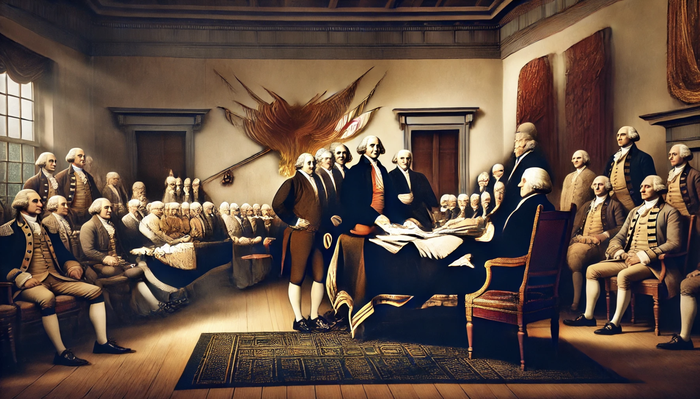
Even though we don’t have all the inside scoop on America’s Founding Fathers as we do on many of today’s leaders, from what we do know, these historical figures set examples our leaders can still follow today.
Regardless of some outspoken groups in today’s culture seeking to discredit and malign America’s Founding Fathers’ names, characters, and efforts, along with tearing down their statues and seeking to erase their names from the history books, with God's help, these heroic men are responsible for initiating and bringing about America’s freedom, which their critics benefit from today.
With Independence Day approaching, let's consider their sacrifice and how we should honor our God-given liberties.
Photo Credit: ©DALL-E, created by SWN using AI
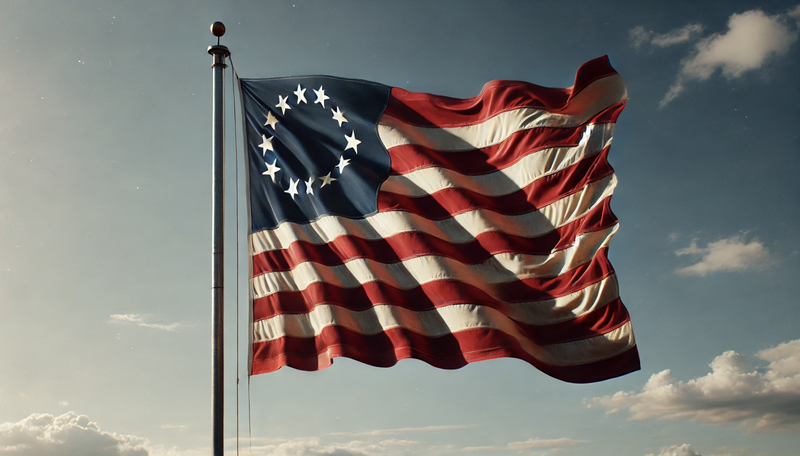
Risking It All for Freedom
Although America’s Founding Fathers were flawed and imperfect men, they were willing to risk losing everything, including their lives, for freedom. In today’s leadership, if truly put to the test, we don’t know how many, if any, would be willing to risk everything for freedom.
The 56 men who signed the Declaration of Independence included lawyers, merchants, farmers, physicians, ministers, a printer, a teacher, and a musician, ranging in age from 26-70 years old.
Well aware of the risk, they knew if caught by the British, they would hang for treason. Benjamin Franklin is noted as saying, “We must indeed all hang together, or most assuredly we shall hang separately.”
Silence Equals Consent: The Sin of Omission author and historian William J. Federer writes, “History is filled with accounts of people suffering coercion and persecution by godless totalitarian governments, maligned, smeared, canceled and crushed in hopeless situations against insurmountable odds, but then, stirred by the Spirit, little nobodies rise up, small in their own eyes, but big in faith and courage, to speak truth to power and to resist evil.”
As Federer writes, “One can gain inspiring faith from leaders of the past.”
Photo Credit: ©DALL-E, SWN created using AI
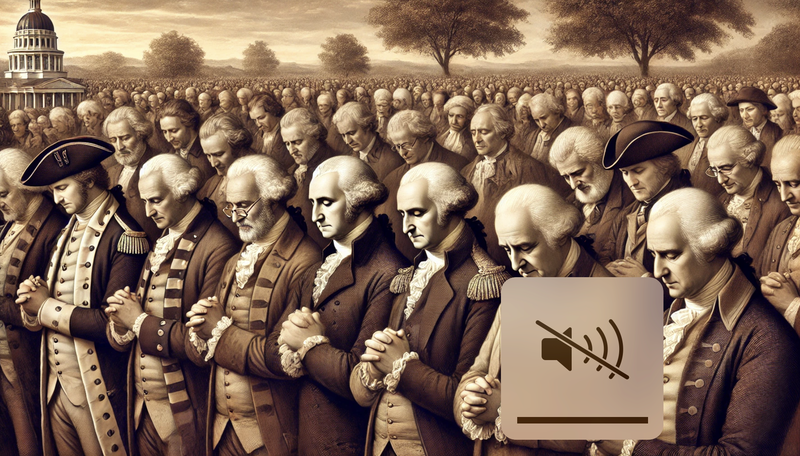
Knowing God Is the Source of Liberty
America’s Founding Fathers recognized who the true enemy of individual freedom is and understood it involved more than just a physical battle but also a spiritual one, too.
Officially meeting together for the first time on September 7, 1774, the Continental Congress of the United States opened with prayer and the reading of Psalm 35 by Rev. Jacob Duche’, which begins with, “Contend, Lord, with those who contend with me; fight against those who fight against me.”
Setting denominational differences aside, our Founding Fathers learned to pray together for America’s freedom. Uniting in prayer, Congregationalists, Anglicans, Quakers, Dutch Reformed, Baptists, Lutherans, Puritans, and Presbyterians came together in one accord, overlooking their differences in how they prayed, for a common goal.
Dennis Prager, an American Conservative radio talk-show host and writer, explains the intentions of our Founding Fathers, “Ultimately, they wanted people to be free to practice their religion and relate to God in their own way. They all knew God is the source of liberty.”
Below are five Founding Fathers whose leadership examples can still be followed by our leaders today:
Photo Credit: ©DALL-E, SWN created using AI
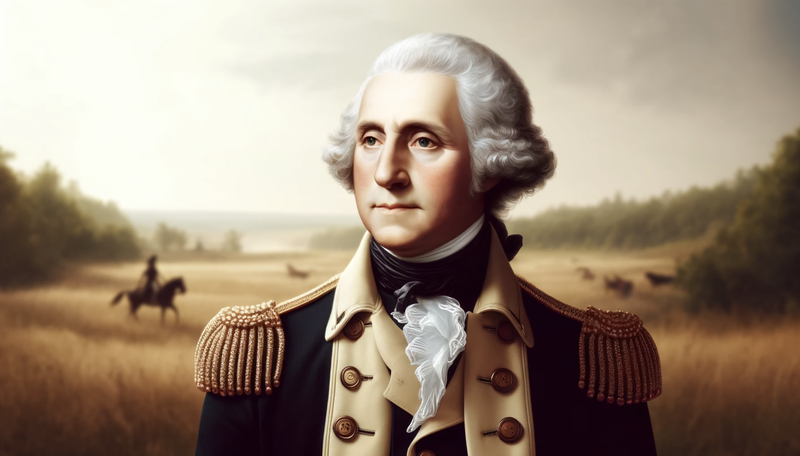
1. George Washington, Who Relied on Prayer
Historian and Providence Forum Executive Director Jerry Newcombe points out this crucial detail about the first president of the United States: “Prayer was important to George Washington. He had a pocket-sized edition of the Anglican Book of Common Prayer, which he used all the time. On numerous occasions, he thanked God for His help in our becoming an independent nation.”
From his writings and actions during the Revolutionary War, historians find Washington relied heavily on prayer, believing that with the tremendous odds set against them, victory could come only with God’s help.
Newcombe writes, “General George Washington delivered this order on July 4th, 1775—a year before independence—to his troops: ‘He requires and expects of all officers and soldiers not engaged in actual duty, a punctual attendance on Divine service, to implore the blessing of Heaven upon the means used for our safety and defense.’"
Like 1 Thessalonians 5:17 urges, Washington prayed continually. Current leaders can follow his example to rely on prayer in leading our nation.
Photo Credit: ©DALL-E, SWN created using AI
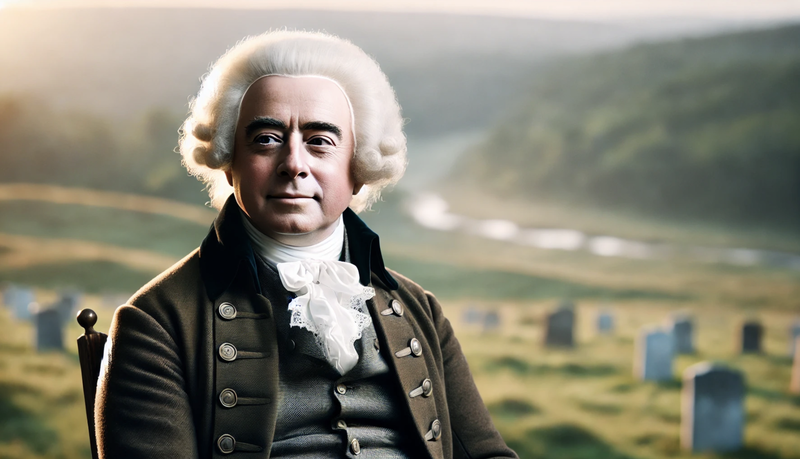
2. John Adams, Who Supported Spiritual Awakening
Founding Father John Adams, who became the first Vice President and the second President of the United States, is noted as saying that the American Revolution was preceded a generation or so by the spiritual revival in the hearts and minds of the people.
Historians believe Patriot leaders were greatly influenced and strengthened by the spread of “The Great Awakening” across the colonies, where leading up to the signing of the Declaration of Independence, prayer and fasting played a critical role in helping America to establish its freedom.
On July 3, 1776, in regard to the Declaration of Independence, John Adams wrote in a letter to his wife, Abigail Adams, “I am apt to believe that it will be celebrated, by succeeding Generations, as the great anniversary Festival. It ought to be commemorated, as the Day of Deliverance by solemn Acts of Devotion to God Almighty. It ought to be solemnized with Pomp and Parade, with Shews, Games, Sports, Guns, Bells, Bonfires, and illuminations from one End of this Continent to the other, from this Time forward forever more.”
Adams seemed to understand where true freedom originates, as 2 Corinthians 3:17 explains, “Now the Lord is the Spirit, and where the Spirit of the Lord is, there is freedom.”
Leaders today can follow Adams' example to support spiritual awakening in our country.
Photo Credit: ©DALL-E, SWN created using AI
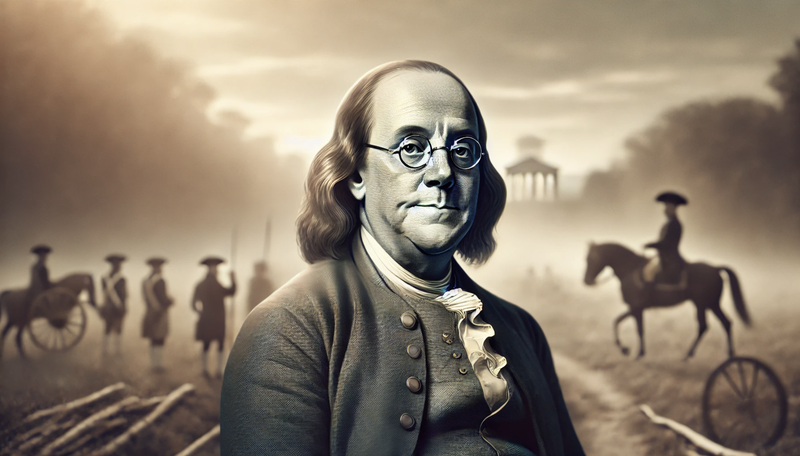
3. Benjamin Franklin, Who Respected Christian Virtues
Franklin’s writings reveal his respect for Christian values, recognizing how they were influential in lowering crime, along with raising interest in self-government. At that time, it’s estimated that three out of every four colonists became Christians.
Historians attribute Franklin with saying, “A Bible and a newspaper in every house, a good school in every district, all studied and appreciated as they merit, are the principal supports of virtue, morality, and civil liberty.”
He seemed to realize that “As the heavens are higher than the earth, so are My ways higher than your ways and My thoughts than your thoughts" (Isaiah 55:9).
Although some may question Franklin’s Christian faith, our leaders can follow his example to respect and see the value and strength Christian virtues bring to our nation.
Photo Credit: ©DALL-E, SWN created using AI
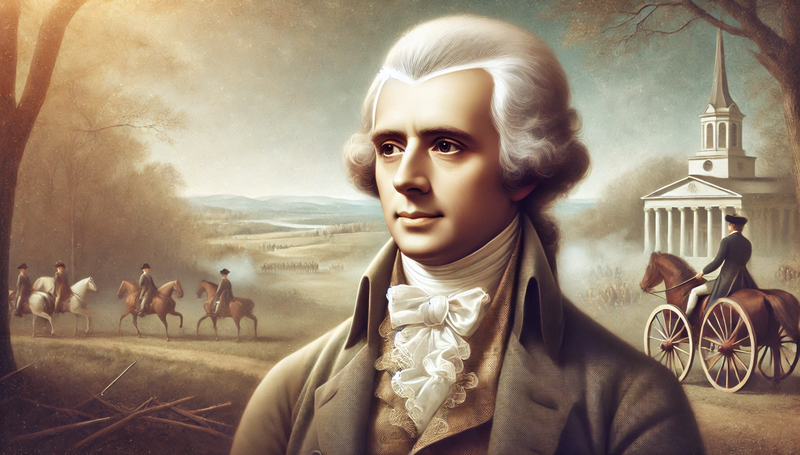
4. James Madison, Who Fought for Freedom of Religion
For his pivotal role in drafting the Constitution of the United States and the Bill of Rights, James Madison was called the “Father of the Constitution,” going on to become the 4th President of the United States.
Throughout his political career, beginning as a state legislator in 1776, he worked to make sure there was not a federal religion imposed on citizens. Madison argued during the Virginia Declaration of Rights for the wording to be changed from citizens having their religion fully tolerated to having “free exercise of religion.”
Madison strongly believed the government had no right to direct an individual’s religion because it was a matter of conscience, which he spelled out in his influential petition called “Memorial and Remonstrance,” containing 15 arguments against government support of churches.
Like Galatians 5:1 urges, Madison fought for freedom of religion in America: “It is for freedom that Christ has set us free. Stand firm, then, and do not let yourselves be burdened again by a yoke of slavery.”
Leaders today can follow his example to make sure freedom of religion is a matter of conscience and not determined by the government.
Photo Credit: ©DALL-E, SWN created using AI
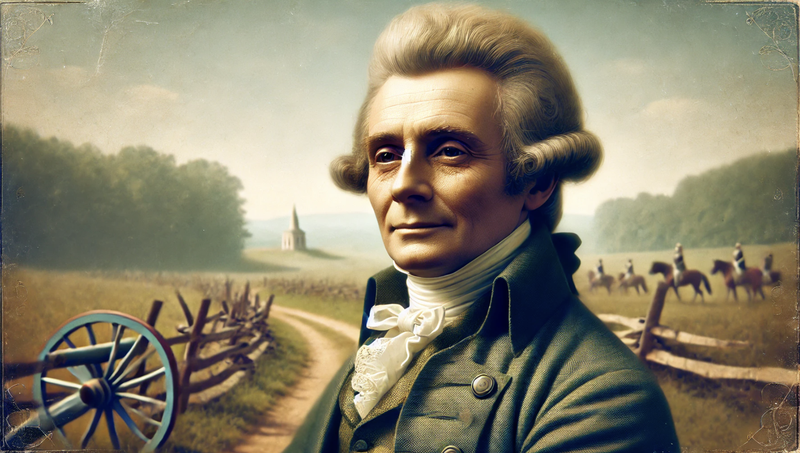
5. John Jay, Who Sought Freedom for the Oppressed
John Jay, the first Chief Justice of the United States, worked to abolish slavery, repeatedly speaking out in opposition to it during his lifetime, as Proverbs 31:8 urges to, “Speak up for those who cannot speak for themselves, for the rights of all who are destitute.”
In 1786, Jay wrote, “It is much to be wished that slavery may be abolished. The honor of the States, as well as justice and humanity, in my opinion, loudly call upon them to emancipate these unhappy people. To contend for our own liberty, and to deny that blessing to others, involves an inconsistency not to be excused.”
As Isaiah 1:17 instructs, Jay was on a path to “Learn to do right; seek justice. Defend the oppressed. Take up the cause of the fatherless; plead the case of the widow.”
Jay believed peace could only come through sharing the gospel, which led him to help establish the American Bible Society in 1816, where he served as president from 1821-1828.
As Jay sought freedom for those oppressed by slavery, leaders today can follow his example by seeking life and liberty for the millions of unborn lives taken away through abortion.
America's Foundational Leadership
In Adam’s letter to his wife, he sums up the leadership’s hope and trust in God that motivated America’s Founding Fathers to establish the United States:
“You will think me transported with Enthusiasm but I am not—I am well aware of the Toil and Blood and Treasure, that it will cost Us to maintain this Declaration, and support and defend these States—Yet through all the Gloom I can see the Rays of ravishing Light and Glory. I can see that the End is more than worth all the Means. And that Posterity will triumph in that Days Transaction, even although we should rue it, which I trust in God We shall not.”
Despite the current cultural backlash towards America's Founding Fathers, our leaders today can glean much from their leadership examples of putting their trust in God to bring about and sustain our nation’s freedom.
Photo Credit: ©DALL-E, SWN created using AI
Originally published Wednesday, 26 June 2024.







